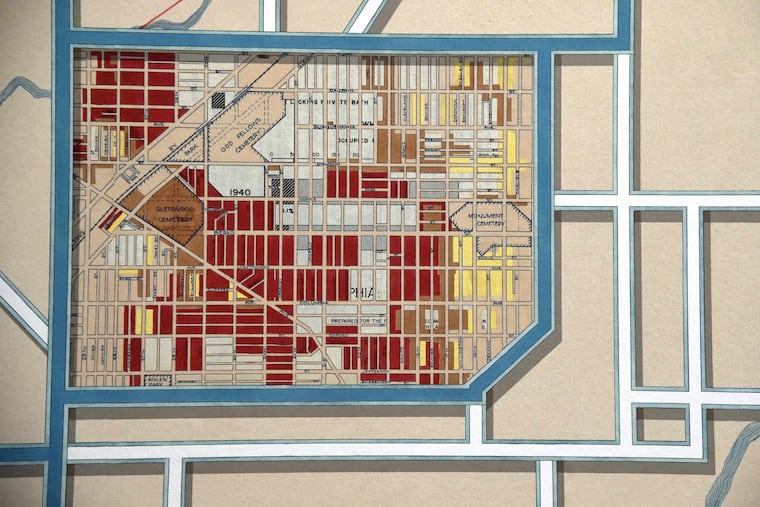Black Philadelphians must fight segregation with economic empowerment | Solomon Jones
Let’s look soberly at our reality, and then invest to uplift the communities that have been systematically neglected, Solomon Jones writes.

When The Inquirer reported that Philadelphia is one of the most segregated cities in America, it should not have surprised anyone in the Black community. Rather, it should have served as confirmation of our lived experience.
Black Philadelphians reside in communities where segregation has been enforced through generations of redlining by financial institutions, urban renewal by governmental authorities, housing discrimination by the real estate industry, and employment discrimination by the business community. If we somehow managed to overcome those barriers, Philadelphia’s white supremacist power structures sometimes resorted to violence, and they were backed by a police department that carried out its racism with a brutality so efficient that the Justice Department once said it “shocks the conscience.”
So, while we appreciate The Inquirer doing the painstaking work required to illustrate that “among the 30 biggest cities, Philadelphia is second only to Chicago in Black-white residential segregation,” we don’t need numbers to tell us that. We live with that reality, and we live with its consequences. Residential segregation is the foundation that allows racist systems to target us more efficiently. But what if Black Philadelphians decided to do something radical? Instead of clamoring for an integrated utopia, we should use the same kind of racial targeting that has worked so effectively against us. But, instead of using segregation to our detriment, we could use it for our advancement.
I’m not suggesting that Black Philadelphians seek to separate ourselves from other communities. That has already happened. I’m suggesting that we look soberly at our segregated reality, and then invest to uplift the communities that have been systematically set apart and neglected.
» READ MORE: Philly remains one of the most racially segregated cities in America
The radical response to segregation is to pool our economic resources to invest in the undesirable. That means purchasing the same real estate that previous generations abandoned and restoring it with Black capital. That means recognizing that the schools in our communities are poisoned by asbestos, ruined by apathy, and raided by white companies who are contracted to carry out never-ending repairs. We must build schools using Black contractors, staff them with Black teachers, and teach Black lessons to Black children. We must move beyond simply putting money into the offering basket at our places of worship. We must put money into our people.
Radically addressing segregation means providing opportunities to the people within those communities — people society tells us are irredeemable. Black people must give jobs to returning citizens. We must teach them to use the same marketing skills they learned on the street to run their own businesses. We must give our people ownership of their communities and themselves, and in doing so, we must teach them to shed the racist beliefs we have internalized. Such beliefs keep us from trusting each other, from valuing each other, and from loving each other, because racism teaches us that Black people are not fully human, and therefore not worthy of being fully loved.
Now, let me tell you what we’re not going to do. We are not going to wait for handouts from the philanthropic community. We are not going to subject ourselves to experiments carried out by academics. We are not going to wait for the government to create a program to save us from the ills the government helped to create. If we truly want to fight the disadvantages created by segregation, we must look soberly at what it has caused.
» READ MORE: Expanding Black futures requires ending racist housing policies that plague Philadelphia | Opinion
Segregation breeds economic disinvestment. That’s why neighborhoods occupied by Black and Hispanic people in Philadelphia experience the highest rates of poverty. Segregation breeds isolation — the sense that no one on the outside understands the hopelessness of being locked into a place where schools are deficient, homes are dilapidated, and police are not protectors but occupiers.
We must flip that sense of hopelessness on its ear. Instead of aiming for integration as a goal, we should aim for empowerment. We have the money to do so. Black people spend around $1.4 trillion annually. We have the know-how. Just ask Geoffrey Canada, who created the Harlem Children’s Zone to provide free services in an impoverished Black community. There is just one ingredient we need in order to effectively use segregation as a weapon against itself.
We need the will to be radical.